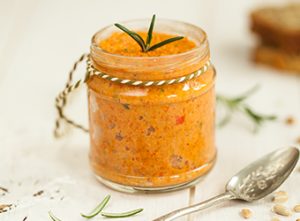Advice from dietitian Jo Travers for Love Your Gut
How to Love Your Gut this Christmas – With Christmas nearly here there’s excitement in the air. But there is also the pressure of planning celebrations with friends and family (maybe for the first time in a long time), shopping, cooking and then eating all the indulgent foods we enjoy at this time of year. It’s important to remember how it can impact our gut health and overall wellbeing.
This is why Jo Travers, Registered Dietitian and Dr Joan Ransley have shared, exclusively for Love Your Gut, some of their top festive tips on how you can look after your gut and its connection with the brain over Christmas and the New Year.
Jo comments:
”Our digestive health has the power to impact everything. It affects not only our physical wellbeing, but also our mental health, mood, immunity and weight, which is why it’s so important to make sure we’re giving it the attention needed, and not only for Christmas! After all, the gut is known as our second brain for a reason, so it will really pay off to give it the love it deserves!”
Jo’s Advice
-
Get out of the stress-digestion cycle
Have you ever felt uncomfortable cramping in your belly or a knot in your stomach when you are stressed? When we are stressed, the muscles in our gut can start to contract abnormally and stress hormones can increase our sensitivity to pain and cause inflammation. All of this can lead to symptoms such as painful cramping, bloating and changes in appetite. This stress response can also alter our bowel movements; we might have trouble going to the toilet or experience an urgent need to go!
There are two easy ways to tackle this. The first is by addressing the stress itself. Relaxing and looking after yourself stops the “fight or flight” response which will reduce stress hormone production, allowing the body to move back into the “rest and digest” state[1].
The second is by looking after your gut microbiome – the many different bacteria in your gut. You can do this by eating plenty of fruit, vegetables, pulses and wholegrains, which contain not only anti-inflammatory compounds to reduce the inflammation, but also prebiotic fibre, known to feed good bacteria and help them thrive, work to restore the microbiome, also potentially reducing anxiety and stress hormone levels.[2]
-
Get enough sleep
Find yourself neglecting sleep to wrap those last-minute Christmas presents or do some late-night online shopping? This could have a negative impact on your gut health!
Sufficient sleep is something we all need all year round, not just at Christmas, but with so much going on, it can sometimes be impossible over the festive period. A good night’s sleep allows your body to recover from the day’s activities and research has shown sleep is important for our gut health too. Poor sleep increases the production of stress-related hormones that can alter your gut microbiome, leading to extra stress and anxiety, as well as lowered immunity.
The quantity and quality of our sleep can affect out microbiota, with poor sleep having some negative consequences. For example, just two nights of interrupted sleep has been shown to disrupt the ratio of two strains of bacteria thought to be involved in preventing obesity, possibly not what we need around Christmas time![3]
To help promote good quality sleep, try sticking to a regular bedtime and wake up routine and make sure your bedroom is dark and quiet. Wake up hormones are stimulated by light, so sunrise can interrupt the last part of your sleep. If this bothers you consider getting blackout curtains, blinds or wearing a sleep mask. Avoid caffeine and alcohol before bedtime, because both are known to reduce your chance of a sound night’s sleep[4]

-
Opt for alternatives and make your own dips
Lots of those traditional Christmas treats like bacon rolls, paté and sausagemeat stuffing tend to be really high in saturated fat, which can have a negative impact on gut microbiota, so why not put down the paté and toast and try gut friendly alternatives such as our vegetarian Red Pepper or Walnut patés and impress your friends and family at the same time.


-
Don’t forget your immunity
Amongst all the fun (and chaos!) you might well forget to look after yourself. However, especially now you need to take the right measures to help your immunity and gut health. There is a strong link between gut health and the immune system. The bacteria in our gut ‘teach’ our immune systems what is harmful and what isn’t. This helps make sure the immune system doesn’t overreact when exposed to harmful antigens and keeps inflammation in check[5].
To help these important bacteria thrive you should eat plenty of fruit, vegetables, legumes, grains and take time out of your busy schedule to exercise and get enough sleep., At this time of year it is also important to boost your Vitamin D levels. Between early April to late September in the UK, the body creates Vitamin D with the help of sunshine, but the sun is not high enough in the sky to do this in the winter months.
Vitamin D is important because it supports the normal function of the immune system and maintains normal bones and muscle function. Foods such as oily fish, liver, meat, eggs and fortified foods such as breakfast cereal and milk can help top you up during the winter.
References
[1] Cherpak CE. Mindful Eating: A Review Of How The Stress-Digestion-Mindfulness Triad May Modulate And Improve Gastrointestinal And Digestive Function. Integr Med (Encinitas). 2019;18(4):48-53.
[2] : Schmidt K, Cowen PJ, Harmer CJ, Tzortzis G, Errington S, Burnet PW. Prebiotic
intake reduces the waking cortisol response and alters emotional bias in healthy
volunteers. Psychopharmacology (Berl) 232: 1793–1801, 2015. doi:10.1007/s00213-
014-3810-0.
[3] https://www.sciencedirect.com/science/article/pii/S2212877816301934?via%3Dihub
[4] NICE guidance (2020),Insomnia. https://cks.nice.org.uk/insomnia#!scenarioRecommendation
[5]Belkaid, Hand (2014), Role of the microbiota in immunity and inflammation. https://www.ncbi.nlm.nih.gov/pmc/articles/PMC4056765/pdf/nihms579635.pdf


